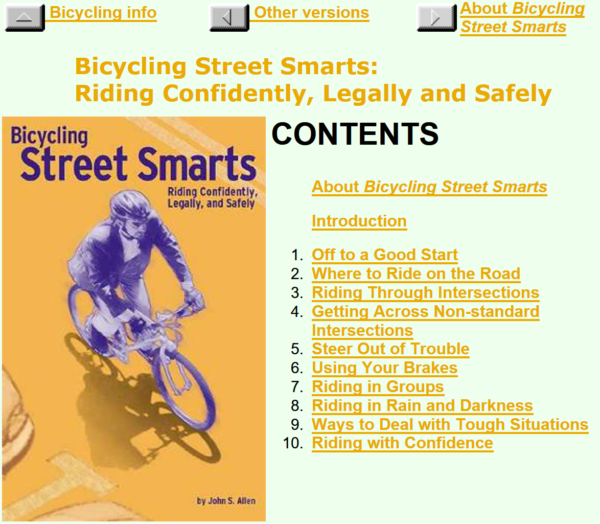We’re bombarded with information telling us what to do to live a long and healthy life — often from companies trying to sell a product. Here’s a small set of habits that we’ve been doing for years and cost little to nothing to implement. Try one out and see what a difference it makes in your energy and outlook.
1. Transport Yourself by Human Power
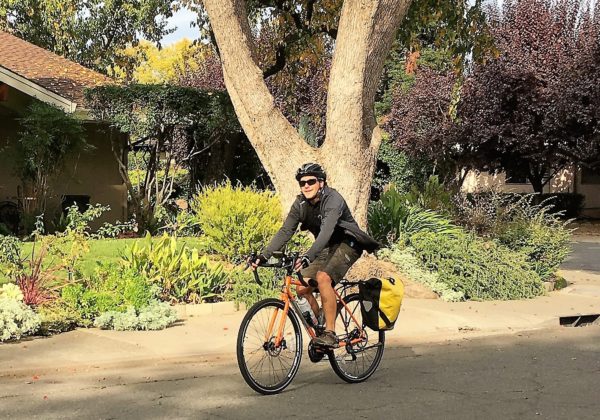
In North America, most people consider cycling, walking, and running as only for recreation or professional sport. Ironically, we drive to the gym to pedal a stationary bike or drive to a park to go for a walk. Getting from point A to B is reserved exclusively for motorized transport. That is a shame because most people live within a bikeable or walkable distance to something. If your home is within 5 miles to work, school, stores, and other amenities, you don’t need to rely on a motor.
Besides liberating yourself from the stress of auto congestion and parking, walking and biking are enjoyable! You can carefully observe your surroundings, feel the wind on your skin, hear the birds chirping, and wave to passing walkers and cyclists as you ride.
In terms of the amount of energy a person must expend to travel, riding a bike is the most efficient form of human-powered transportation.[1]
If you are hesitant to cycle because you think it is dangerous, know this: drivers are at an increased risk of heart disease, type 2 diabetes, and cancer. A sedentary lifestyle will slowly kill you in the form of obesity and disease…and it does. For every hour you spend sitting in a mobile isolation chamber, your risk of obesity goes up by 6%, and cardiovascular diseases are the #1 cause of death globally.[2] Driving is clearly more hazardous to your health. It shortens your life.
While bike commuting does pose some elevated safety risks, the health benefits exceed collision as well as emission detriments. In other words, exposure to motorized traffic and the air pollution it generates is less of a risk than the physical activity benefits of cycling. Human-powered transport is simply the best choice for your overall health.[3]
Furthermore, you can make your bike commute safer by avoiding heavily trafficked streets. Use the Google maps cycling overlay feature (click on the menu and bicycling) to find roads with minimal traffic, bike lanes, or bike trails. You can also use this for directions by clicking on the cycling icon.
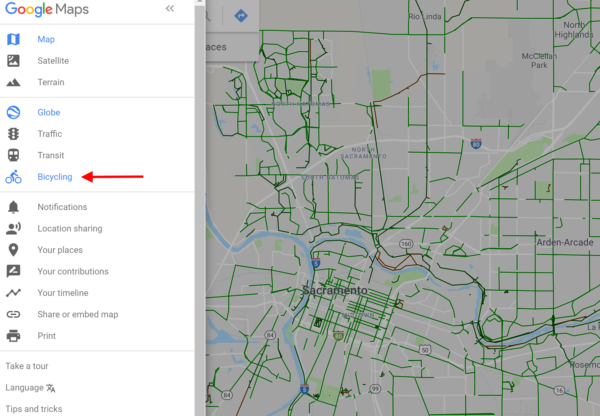
If you live in a city that promotes cycling infrastructure, you might be able to avoid traffic entirely. Nevertheless, you’ll probably need to ride in traffic at some point. Before you do, take a moment to familiarize yourself with the proper road riding skills and bike etiquette. A useful resource for this is Bicycling Street Smarts.
If the physical and mental health benefits of human-powered transportation aren’t enough, the money savings might convince you. Unlike vehicles, which require a constant flow of cash to operate and an expert to repair, bicycles cost nothing to operate and very little to maintain. In fact, bikes are so mechanically simple that you can do most of the maintenance yourself. Learn basic bike maintenance skills such as how to change a flat tire and adjust brakes, and you’ll feel more confident when you ride. Some useful websites for repair include Jim’s repair site and Park Tool.
Ultimately, if you are the type of person that favors freedom, cycling will not disappoint. The challenges and rewards of riding a bike will give you a sense of accomplishment and independence. Perhaps that’s why cyclists don’t view their bike as just another boring means of transportation – it’s a passion. And passion encompasses lifestyle, so it is no surprise that cyclists prefer to live in places favorable to riding.
This brings us to the next point.
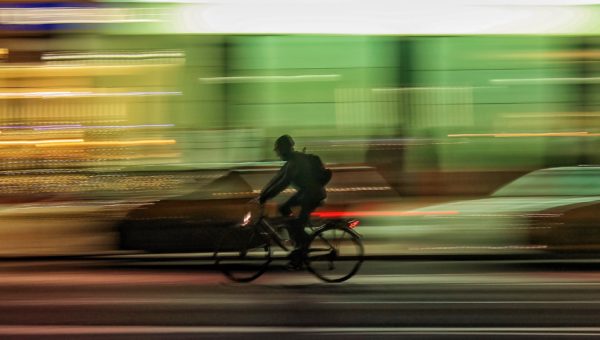
2. Change Where You Live
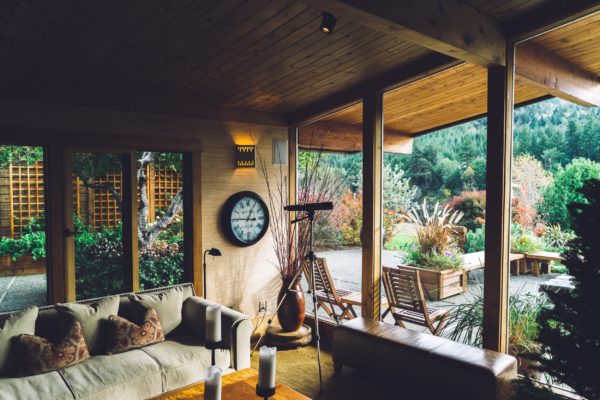
Although the place that you live in is not technically a habit, it is probably something you can change. Life satisfaction is difficult to achieve if your lifestyle needs can’t be met.
In “The Blue Zones of Happiness,” Dan Buettner wrote about hotspots in the world where people live happier and longer lives. According to Buettner, “Where a person lives determines their level of happiness more than any other factor. And “If you are among the happiest 20% of people, you live around 8 years longer than the saddest. So a real strategy for living longer is getting happier.” The happiest places tend to have abundant sunshine, green space, access to whole foods, and a community that emphasizes fitness.[4]
As someone who has lived in multiple locations, I agree. Where you live is extremely important to your overall wellbeing.
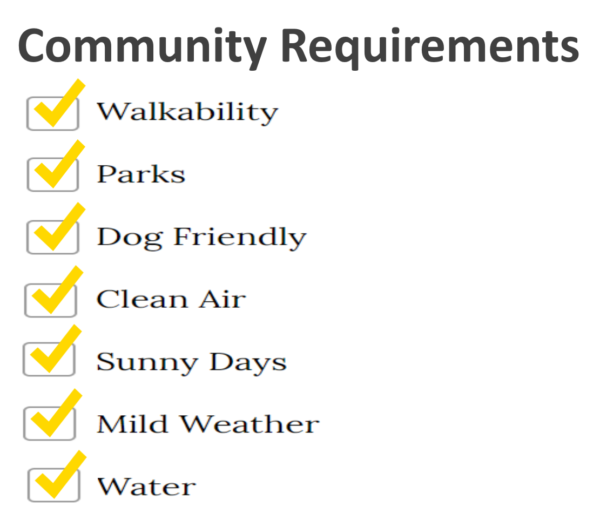
Do you live in a place that supports your lifestyle needs? If your soul cries out for solitude and nature, maybe you shouldn’t confine yourself to a cubicle job in a crowded megacity. If your greatest joy is hiking in the mountains but must board a plane to get there, you probably won’t be spending much time there. Your happiness shouldn’t be limited to your vacation days or weekend.
While climate isn’t everything, there is no doubt that long, frigid winters with weeks of gray skies will deaden the soul of someone who loves the warmth and outdoors. For others, winter might be the perfect time to watch football, go shopping, or spend time with family. If you are surrounded by people who share your goals and lifestyle values, you are going to feel more satisfied.
If cycling, walkability, and greenspace are essential to your wellbeing, and you live in a place that doesn’t provide this, you might want to consider relocating to a location that does. A starting point for researching places with walkability and bikeability is the site Walkscore. If you’re curious about the data, the website Bike League City Ratings and People for Bikes contain more details behind the bike-friendly ratings.
Meanwhile, try to optimize your environment where possible. Get involved with like-minded people and engage in what Buettner refers to as “positive affect” pleasurable moments. This may include hiking, biking, skating, paddling, swimming, yoga, joking with friends, and playing with your dog.
Lastly, and most importantly, you must be healthy to be happy. One can’t exist without the other. This brings us to the next habit.
3. Eat Plant-based Wholefoods
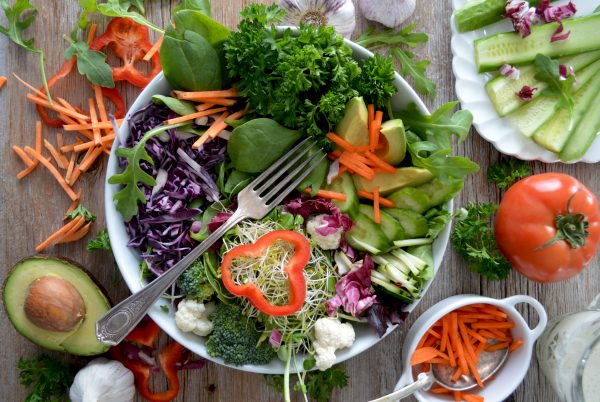
Because your body is fueled by food, diet plays a vital role in how the body performs. If you are active, it only makes sense that you care about the fuel you put in your body. There is no doubt that people across the globe are healthier and happier when their primary diet is based on plenty of vegetables, fruits, and whole grains.
When eating packaged foods: be discerning when buying food from the “Big Ten” billion-dollar brands that control the global food market. Often, the objective of these companies is to maximize profit rather than ingredient quality. This typically involves the use of addictive substances to enhance the flavor of the food. The intention is to alter the taste so that cheaper ingredients can be used to manufacture them.
To push these companies to become better — and for customers to know who controls the brands they’re buying — Oxfam created this behind the brands’ infographic, which shows how many consumer brands are owned by just a few large companies. Meanwhile, read our tips for evaluating packaged food quality.
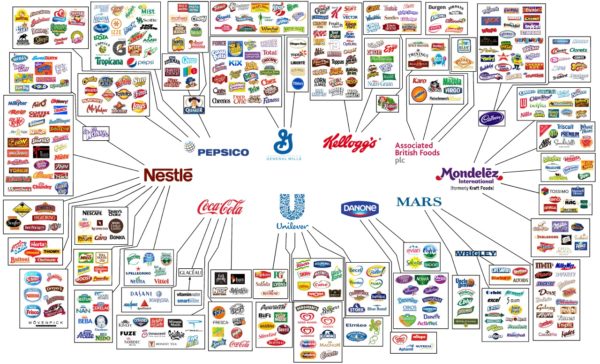
Lastly, what separates us, tech-savvy humans, from ordinary apes is that we are capable of working together in massive communities to change our circumstances. Those efforts can improve or destroy the planet. Mistreatment and detainment of animals in CAFO’s is a disgusting example of what humans are capable of. It seems appropriate then that humans, skilled at cooperation and a highly developed intellect, be responsible for finding a healthy, respectful way to sustain all life forms on the planet. Meat consumption presents a multitude of dilemmas.

4. Get Enough Sleep

Studies show that not getting enough sleep or getting poor quality sleep on a regular basis leads to an increased risk of high blood pressure, heart disease, and other medical conditions.
Don’t listen to anyone telling you 4 hours of sleep is all it takes to be productive. Unless you’re a freak, you need to sleep a minimum of 6 hours per day — optimally, 7 to 8 hours. The National Sleep Foundation shows how much sleep you need at each age based on this worldwide study published in Sleep Health. Make sure to also address any sleep quality issues. You can read our tips for getting better sleep on the trail.
Getting too much screen time is an epidemic in our society, and it is interfering with your sleep.
Do you have trouble falling asleep or suffer from dry, scratchy eyes? Studies are showing this is the result of people spending so much time transfixed to computers, phones, tablets, and TV. We simply forget to blink while staring at these screens. Additionally, the blue light emitted from the screen interfere with relaxation, making it more difficult to fall asleep. Blue light disrupts the body’s production of the sleep-inducing hormone melatonin. Turn off your device at least 30 minutes before you plan to go to sleep.
If you still feel tired after getting adequate and quality sleep, check for a nutrient deficiency. Identify any deficiencies by having your blood drawn by a lab. Take a supplement to correct any deficiencies. Some common deficiencies that might lead to fatigue include – Vitamin B12, Vitamin D, Iron, Iodine, Magnesium, and Potassium.
Vitamin D deficiency is especially prevalent in cloudy climates, winter months, and northern latitudes (above 37°N).[5] 90 percent of our natural vitamin D comes from the sun. When exposure to UVB radiation is insufficient, supplementation is recommended.
5. Disengage from Devices
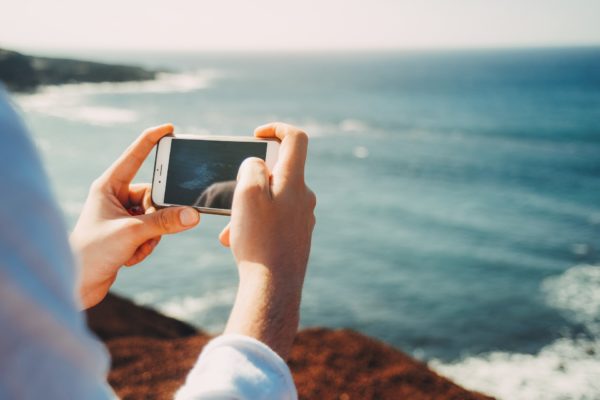
Technology is designed to be manipulative. The framework is extremely powerful. If you’re curious about something, it gives you a quick answer. If you’re feeling bored, it can help entertain. If you’re feeling lonely, it can help you to connect. If you are feeling awkward or insecure, it can soothe your anxiety.
If we’re not careful, our devices can own us.
Critics say that companies like Facebook and Google take advantage of our psychological framework to capture our attention for as long as possible. Free apps, such as Facebook, must be paid for by advertisers. The more time you spend on these advertising-supported apps, the more profit it generates. So it is no surprise that designers optimize these advertising-supported apps to satiate our psychological need to feel good. It’s similar to operating a slot machine, you scroll through your newsfeed looking for interesting content, and once you find something engaging/funny/pleasurable, you are awarded a payoff, flooding your brain with feel-good chemicals.
While it is nice to be able to check what’s going on with everyone, we follow on social media, continually viewing what everyone else is doing creates constant underlying anxiety, a term referred to as FOMO (The Fear of Missing Out). JOMO or the Joy of Missing Out is FOMO’s counterpart. The idea behind JOMO is by disengaging from social media, you place yourself back in the physical world and use this spare time to recharge your brain on meaningful activity, thus lowering your anxiety and addiction.
Do you pick up and look at your smartphone repeatedly throughout the day? Most people check their phones in short bursts each day, which can add up to several hours. To remove time-wasting distractions and help break phone addiction, I suggest taking the following steps:
- Turn off all push notifications on your phone.
- Set limits on your screen time. If you have an iPhone, iOS 12 lets you choose how many minutes you want to spend each day on various categories of programs, such as social media. (to enable iPhone limits, go to Settings->Screen Time->App Limits). You can also monitor and receive reports on your daily usage. Android has a similar app (in beta as of October 2018) called Digital Wellbeing for devices running Android 9.0.
- Schedule Do Not Disturb for the hours you typically sleep.
- Try powering off your phone for a few hours every day, an entire day, or weekend.
- Educate yourself further about the societal cost of technology distractions
A smartphone is a powerful tool, and any such device can become addicting. Don’t let it distract you from your life goals and enjoyment.
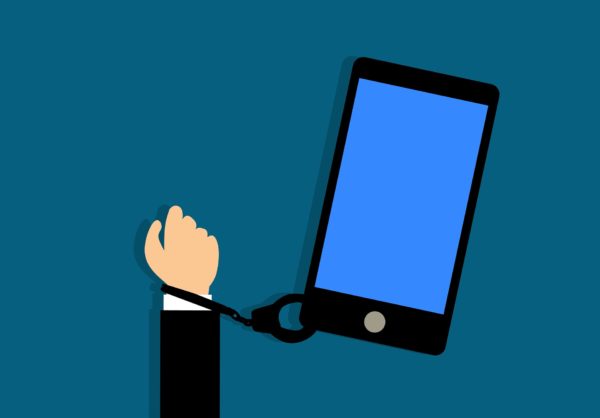
See if following any of these habits slants your life on the upside. Let us know how it works out for you by replying to this post.
REFERENCES
1. Modes of Transport at https://en.wikipedia.org/wiki/Mode_of_transport [Accessed 17 Oct. 2018]
2. Available at: https://fcm.ca/Documents/tools/GMF/Transport_Canada/ActiveTranspoGuide_EN.pdf [Accessed 17 Oct. 2018].
3. Mueller, N., Rojas-Rueda, D., Cole-Hunter, T., de Nazelle, A., Dons, E., & Gerike, R. et al. (2015). Health impact assessment of active transportation: A systematic review. Preventive Medicine, 76, 103-114. doi:10.1016/j.ypmed.2015.04.010
4. 9 Questions for Dan Buettner: Happiness Lessons From the Happiest Places in the World – Blue Zones. (2017). Blue Zones. Retrieved 17 October 2018, from https://www.bluezones.com/2017/10/happiness-lessons-from-happiest-countries-and-cities-in-the-world/
5. Publishing, H. (2018). Time for more vitamin D – Harvard Health. Harvard Health. Retrieved 17 October 2018, from https://www.health.harvard.edu/staying-healthy/time-for-more-vitamin-d
